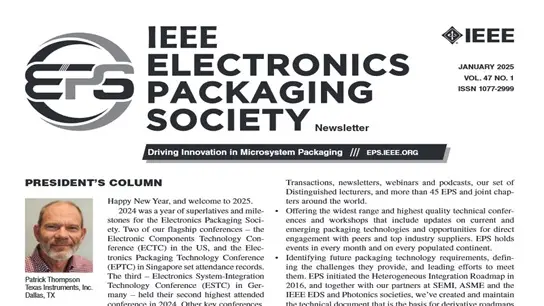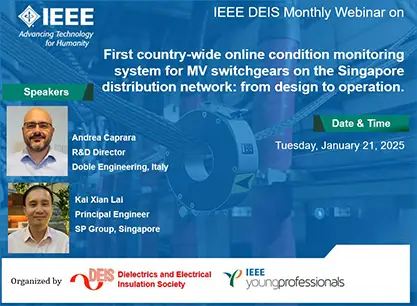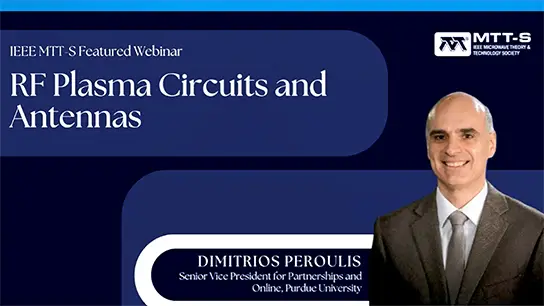Considerations for Thermal and Reliability Performance of Cooling Solutions Utilizing Phase-Change Materials Video
David Huitink
-
Members: FreeEPS
IEEE Members: $11.00
Non-members: $15.00Length: 01:00:24
19 Sep 2023
Abstract: Phase change materials offer the opportunity to passively absorb energy through latent heat exchange during phase transitions, which makes them a prospective solution for temperature management in electronics. This webinar will introduce the topic of phase change materials, their key properties, and how their performance may benefit the thermomechanical reliability in electronic assemblies. The discussion will familiarize participants with the key considerations of where these materials have greatest benefit, and illustrate the importance of optimal placement, properties, and operating conditions in leveraging the benefits of latent heat exchange. Bio: Professor Huitink's research portfolio spans the intersection of materials and thermal sciences, where fundamental thermophysical material behaviors can be leveraged for engineered applications. Herein, the interplay between atomic bonding, polymorphism, & nanoscale interactions with thermal transport, generation and storage have important implications in energy sciences, thermally active and functional materials, and materials processing. In particular, the Huitink lab works toward developing next generation, high density power electronics for electrified transportation and power conversion systems, and leverages advances in materials and thermal technologies for enabling High-Reliability electronics packaging. Moreover, the reliability efforts include developing novel methods for observing and isolating the physical mechanisms behind material degradation and failure in materials used in high power, high voltage electronic assemblies. Prior to joining Academia, Professor Huitink spent more than 5 years in industry, working in microelectronics technology development and manufacturing at Intel Corporation, where he served as Quality & Reliability Engineering Program Manager for Intel's Custom Foundry Division. There he pioneered the development of advanced methods of predicting reliability of silicon-based flip chip microelectronic packages, as well as developed testing protocols and FEA methods for governing Design for Reliability (DfR) guidance. Prior to his industry experience, Dr. Huitink received his PhD in Mechanical Engineering from Texas A&M University as a NSF Graduate Research Fellow, working on complex nano-scale interactions at material interfaces under chemical and mechanical influence.


